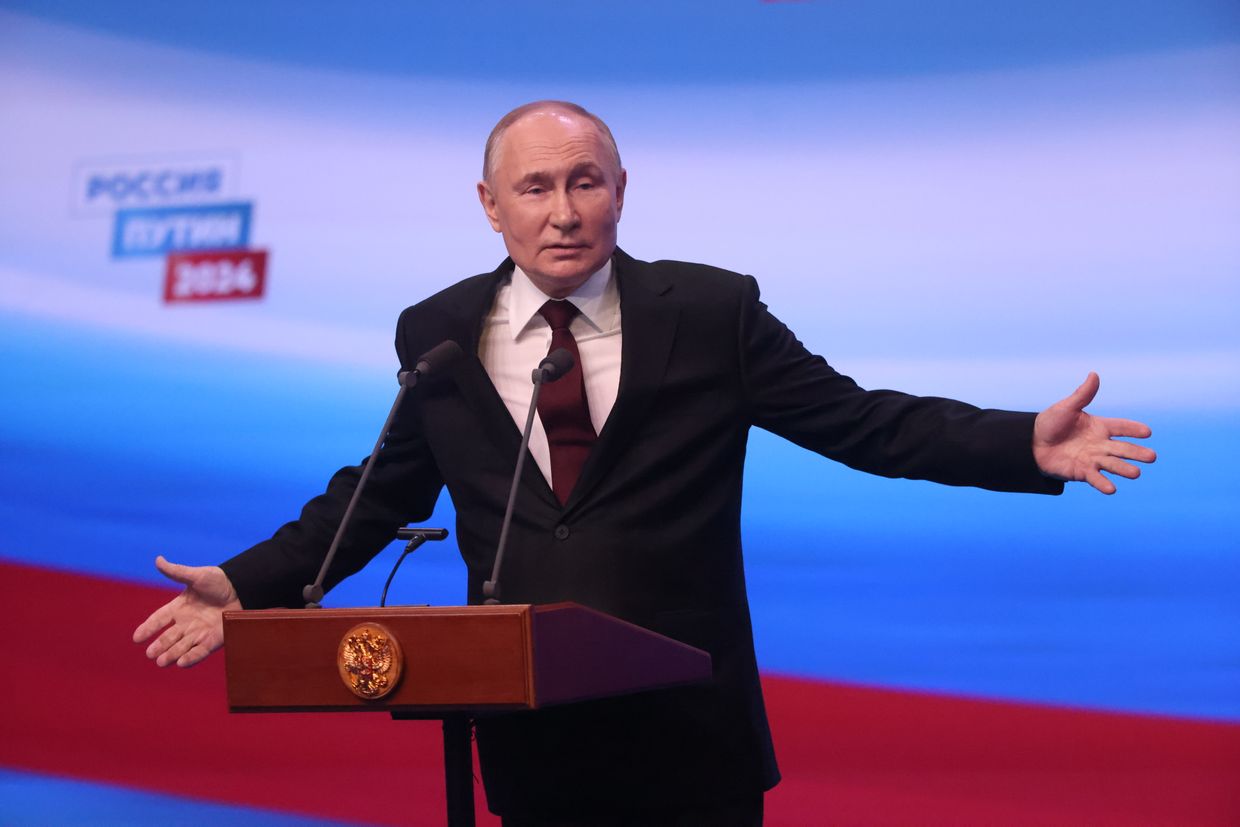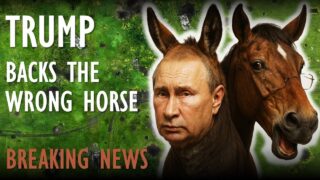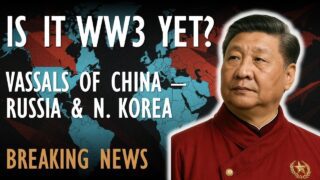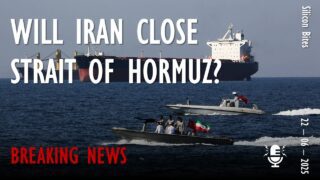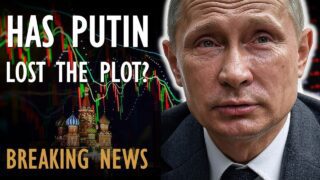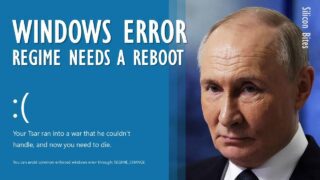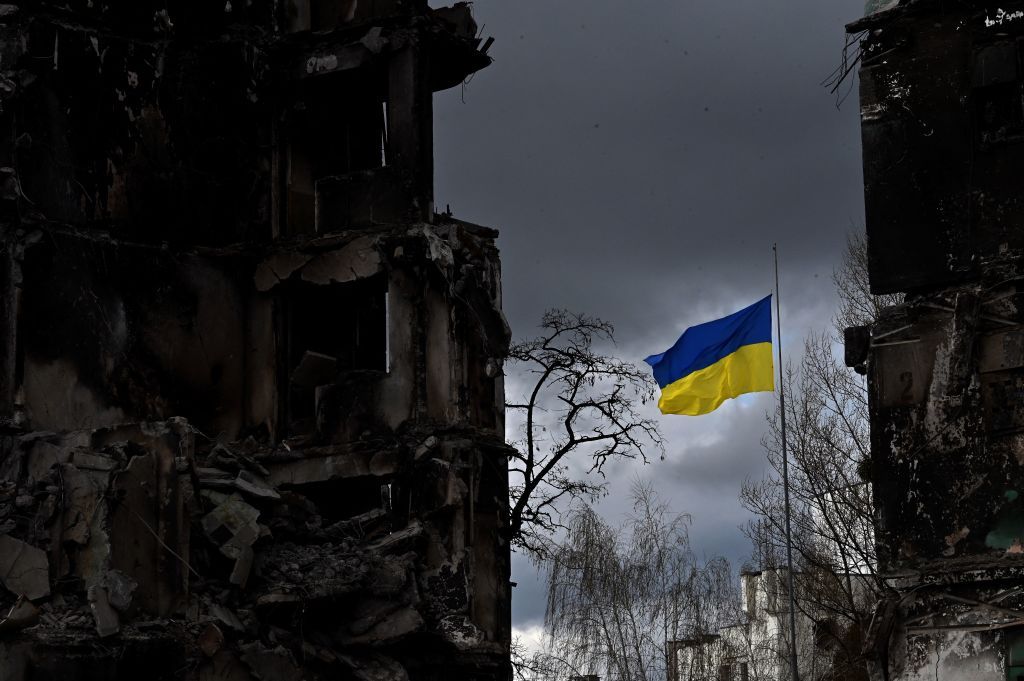
Slavoj Žižek: Ukraine’s fight against Russia is a metaphysical struggle for survival
To understand recent fears about the possible escalation of Russia’s war on Ukraine into a nuclear conflict, we must revisit its beginnings, where the groundwork for this crisis was laid. Dmitry Medvedev, a former Russian president and now deputy chairman of Russia's Security Council, articulated the wager underpinning Russia’s aggression in early 2023:
“I believe that NATO would not directly interference in the conflict even in this scenario,” Medvedev said, referring to the possibility of Russia using nuclear weapons on Ukraine. “The demagogues across the ocean and in Europe are not going to die in a nuclear apocalypse.”
Medvedev’s statement assumes a fundamental principle: the full sovereignty of a state depends on its citizens’ willingness to die for it. In this view, Western societies, consumed by commercialism and hedonism, have abandoned this principle. By contrast, Russian President Vladimir Putin has asserted that true sovereignty requires such a commitment:
“In order to claim some kind of leadership — I am not even talking about global leadership. I mean leadership in any area — any country, any people, any ethnic group should ensure their sovereignty,” Putin said. “Because there is no in-between, no intermediate state: either a country is sovereign, or it is a colony, no matter what the colonies are called.”
To Putin, Ukraine falls into the latter category — a pseudo-entity of a non-existent nation undeserving of sovereignty.
This perspective invites an unexpected philosophical parallel. Putin’s and Medvedev’s rhetoric echoes Hegel’s “Phenomenology of Spirit,” specifically the dialectic of master and servant. In Hegel’s framework, when two self-consciousnesses engage in a life-or-death struggle, if both are willing to risk everything, no victor emerges — one dies, and the survivor lacks recognition. History and human culture depend on an initial compromise: one side “averts its eyes” and becomes the servant. Medvedev assumes the “decadent, hedonist” West will avert its eyes. However, as the Cold War taught us, in a nuclear confrontation, there are no victors — both sides perish.
"Medvedev assumes the 'decadent, hedonist' West will avert its eyes. However, as the Cold War taught us, in a nuclear confrontation, there are no victors — both sides perish."
The ongoing conflict between Russia and the West thus has profound philosophical dimensions. Anton Alikhanov, governor of the Russian exclave Kaliningrad, recently claimed Immanuel Kant, who lived in the region, has a “direct connection” to the war in Ukraine. Alikhanov blamed Kant’s “godlessness and lack of higher values” for creating the sociocultural conditions that led to World War I and the current conflict:
“Today, in 2024, we’re bold enough to assert that not only did the First World War begin with the work of Kant, but so did the current conflict in Ukraine. Here in Kaliningrad, we dare to propose — although we’re actually almost certain of it — that it was precisely in Kant’s ‘Critique of Pure Reason’ and his ‘Groundwork of the Metaphysic of Morals’… that the ethical, value-based foundations of the current conflict were established.”
Alikhanov described Kant as a “spiritual creator of the modern West,” responsible for ideas such as freedom, the rule of law, liberalism, and the European Union. If Ukraine resists Russia in defense of these values, Kant’s philosophy indirectly supports Ukrainian resistance. Such statements, however outlandish, highlight the metaphysical stakes of the war.
Patriarch Kirill of the Russian Orthodox Church similarly invoked spiritual rhetoric, dismissing fears of nuclear apocalypse. In a shocking display, Kirill praised Russian scientists for developing “incredible weapons” and claimed that concern over such issues is “not good for spiritual health”:
“We await the Lord Jesus Christ who will come in great glory, destroy evil, and judge all nations.”
The word “spirit” should be used here without irony: the ongoing war is not merely a struggle for territorial control or economic power. It is also more than an effort to annihilate a nation, though it carries a clear genocidal dimension — not in the literal sense of killing every member of a nation but in depriving survivors of their ethnic identity and assimilating them as Russians.
It goes beyond signaling a global geopolitical shift. This is a war of spirit against spirit, pitting two mutually exclusive visions and practices of what it means to be human. Perhaps we should return to Nietzsche, who, in “Ecce Homo” near the end of the 19th century, offered a grim vision of the next century:
“For when Truth battles against the lies of millennia there will be shock waves, earthquakes, the transposition of hills and valleys such as the world has never yet imagined even in its dreams. The concept of ‘politics’ then becomes entirely absorbed into the realm of spiritual warfare. All the mighty worlds of the ancient order of society are blown into space — for they are all based on lies: there will be wars the like of which have never been seen on earth before.”
Before dismissing these lines as obscure brooding, we should note that Alain Badiou, though far from a Nietzschean, arrives at similar conclusions in his booklet “The Century.” Badiou uses the metaphor of the 20th century as the wounded body of a beast — a concept he borrows from Osip Mandelstam's 1923 poem “The Age.” The beast of the 19th century lived in relative comfort, lulled by the illusion of steady economic and political progress. But in the 20th century, the beast grew weary of incremental progress, choosing instead to confront history directly, attempting to fulfill the promises of the 19th century through acts of brutal voluntarism.
As Friedrich Nietzsche foresaw, this shift gave rise to a new kind of "spiritual warfare": two unprecedentedly destructive world wars, accompanied by violent revolutions. Yet these upheavals merely wounded the beast, failing to produce the envisioned "New Man." What, then, follows this distinctive mix of hope and brutal disillusionment that defined the 20th century? In “The Will to Power,” Nietzsche speculates about the 21st century, predicting “the total eclipse of all values” alongside the emergence of “barbaric nationalistic brotherhoods”:
“Nobody should be surprised when… brotherhoods with the aim of robbery and exploitation of the nonbelievers… appear the arena of the future.”
Here we are now, and the irony is that those who call for a return to traditional values are often the most ruthless in their “robbery and exploitation of the nonbelievers.” We must all be prepared to risk our lives, but the key distinction between Russia and Western Europe lies in their perspectives on death. As we’ve seen, Russia claims it does not fear death, believing in a divine power that will redeem its people in the afterlife. In contrast, Western Europe operates with the knowledge that there is no higher guarantee — death is simply the end.
Our hope rests on the possibility that Russia’s proclaimed readiness to die is merely a bluff, part of a strategic façade. Yet, even a bluff can have real and dangerous consequences. The only God that seems fitting for our era is one of all-encompassing indifference, a concept that Clarice Lispector captures in her chilling description of such a deity:
“What still frightened me was that even the unpunishable horror would be generously reabsorbed by the abyss of unending time, by the abyss of unending heights, by the deep abyss of the God: absorbed into the heart of an indifference. So unlike human indifference.”
Editor’s Note: The opinions expressed in the op-ed section are those of the authors and do not necessarily reflect the views of the Kyiv Independent.
